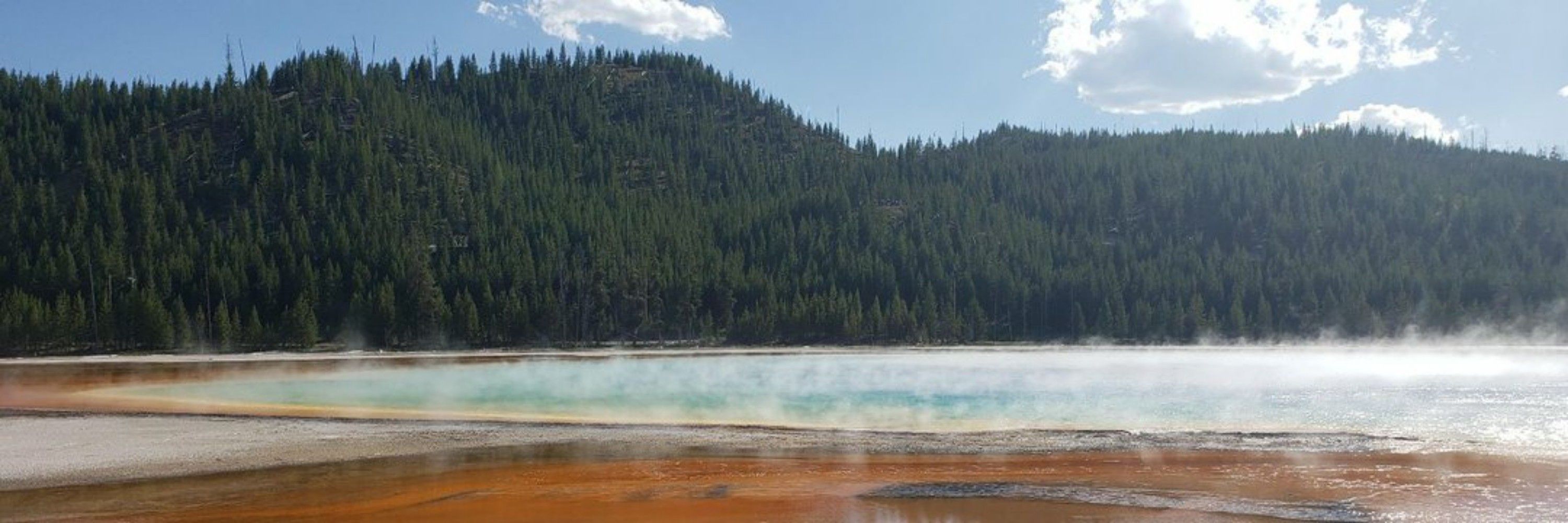


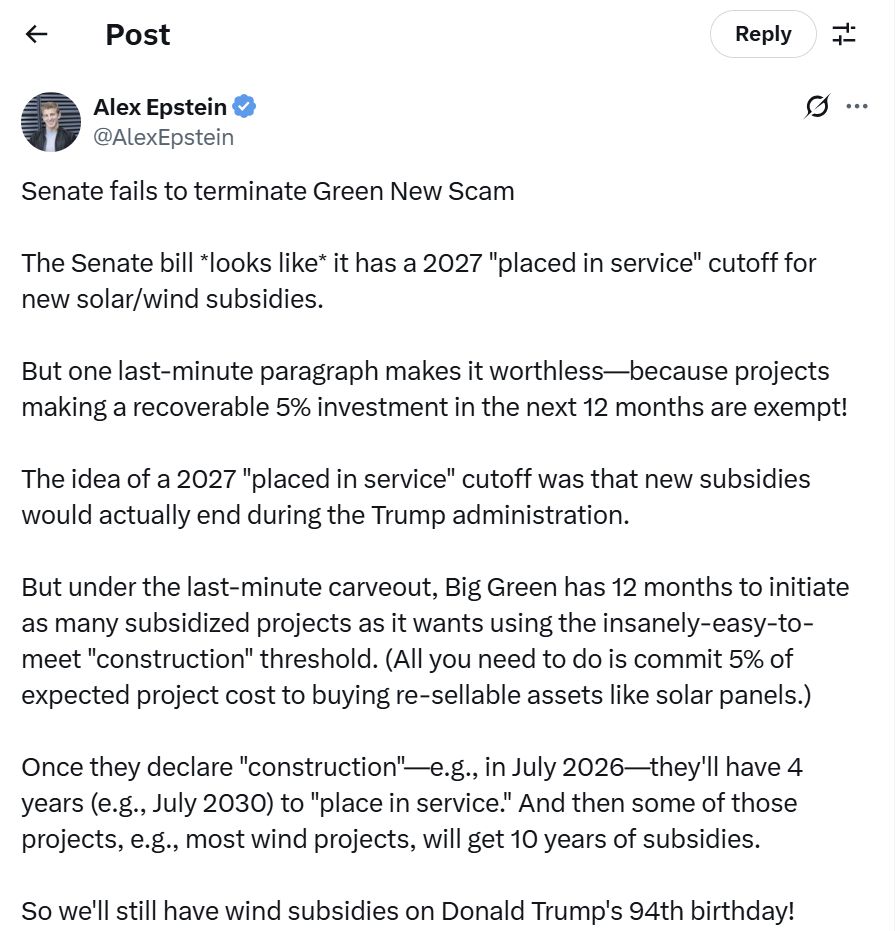
Foreign Entity of Concern language is substantively different from House bill, but still applied throughout. Critical question: is this workable for industry to comply with? Safe harbor language clarified (good). Stay tuned...
Foreign Entity of Concern language is substantively different from House bill, but still applied throughout. Critical question: is this workable for industry to comply with? Safe harbor language clarified (good). Stay tuned...
Fervo offered an update to partners and investors at its #capeconnect event today, showcasing progress on its 100MW Cape Station project in UT.
I tagged along and I learned a lot. Some highlights based on my notes follow… 🔌💡
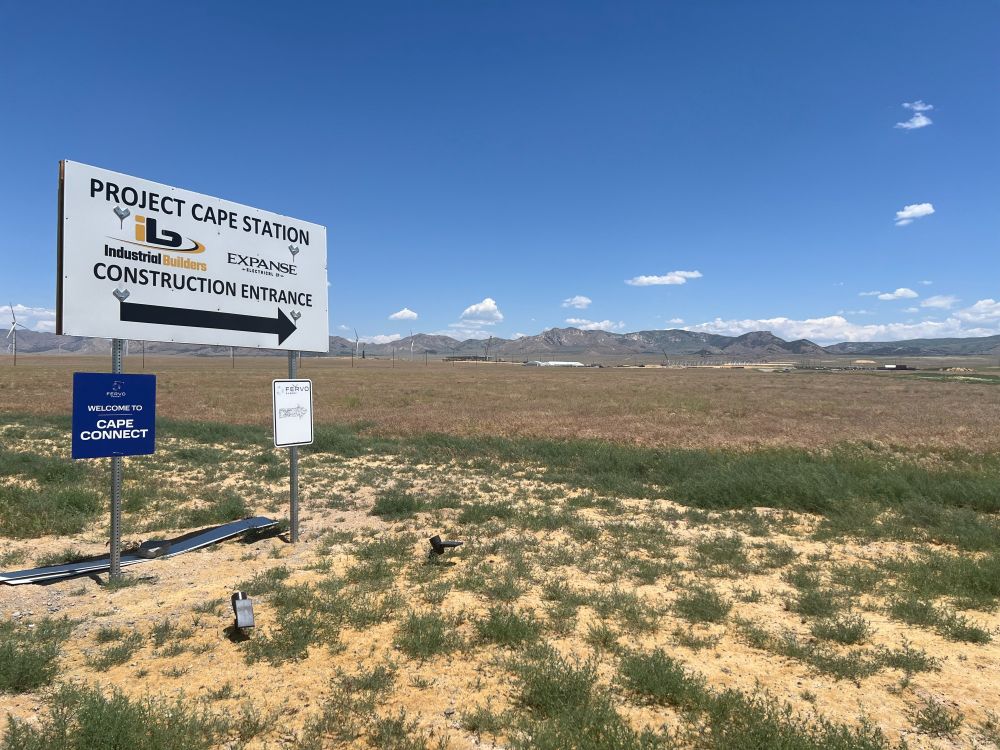
Fervo offered an update to partners and investors at its #capeconnect event today, showcasing progress on its 100MW Cape Station project in UT.
I tagged along and I learned a lot. Some highlights based on my notes follow… 🔌💡
That’s a big improvement from last year, when it drilled an 8000 ft well and reached 370°F temps in 41 days.
www.linkedin.com/posts/timlat...
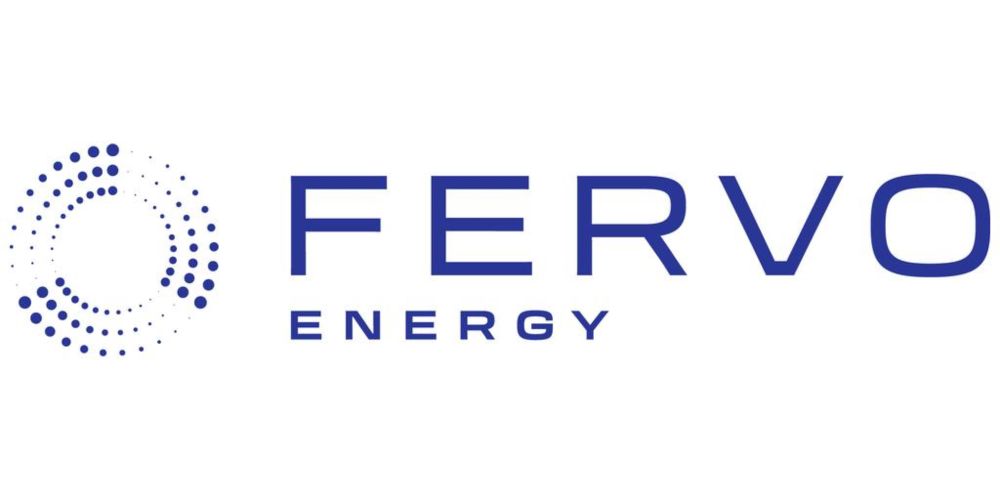
That’s a big improvement from last year, when it drilled an 8000 ft well and reached 370°F temps in 41 days.
www.linkedin.com/posts/timlat...
Just deeply, deeply alarming
www.theguardian.com/environment/...

Just deeply, deeply alarming
www.theguardian.com/environment/...
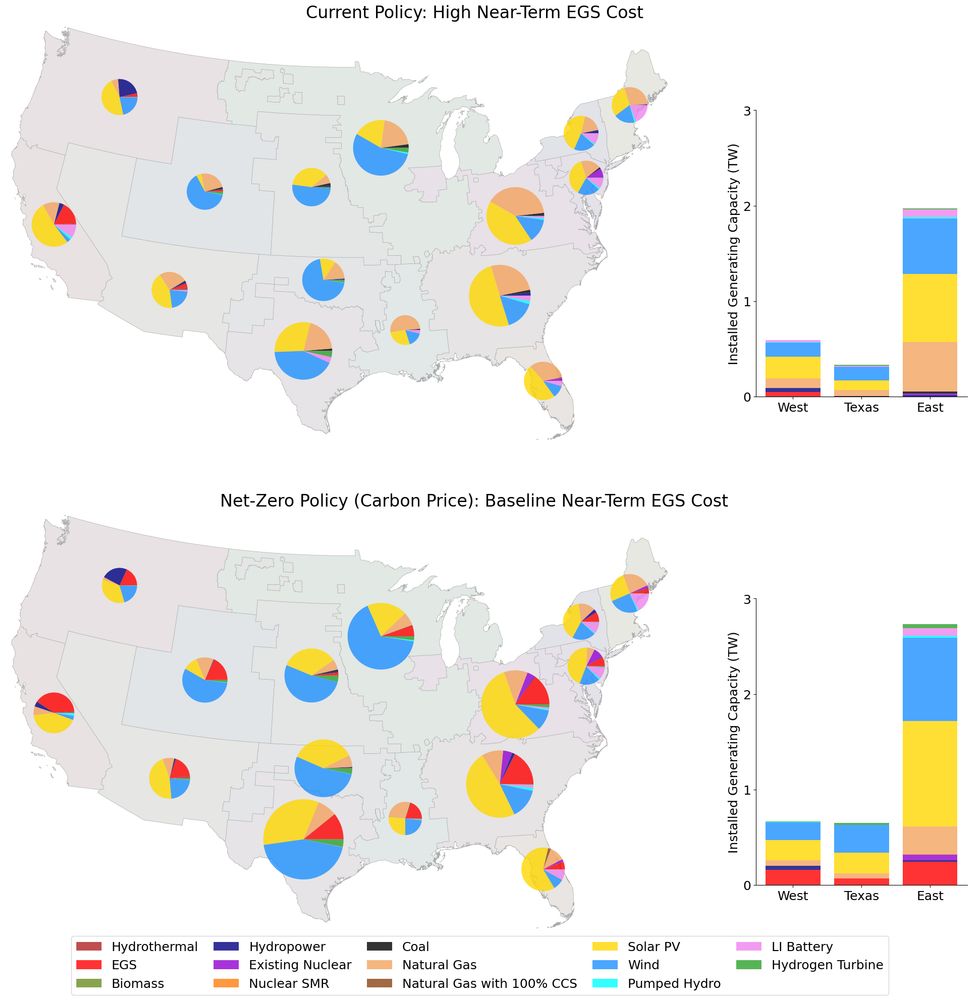
Little has been done to change that, ProPublica and @opb.org found.

The shale fracking boom was a product of its unique market structure. Enhanced geothermal is very different.
Latest from me and @buddyyakov.bsky.social at CPE—here's what a geothermal boom *really* requires:

The shale fracking boom was a product of its unique market structure. Enhanced geothermal is very different.
Latest from me and @buddyyakov.bsky.social at CPE—here's what a geothermal boom *really* requires:
www.houstonchronicle.com/business/ene...
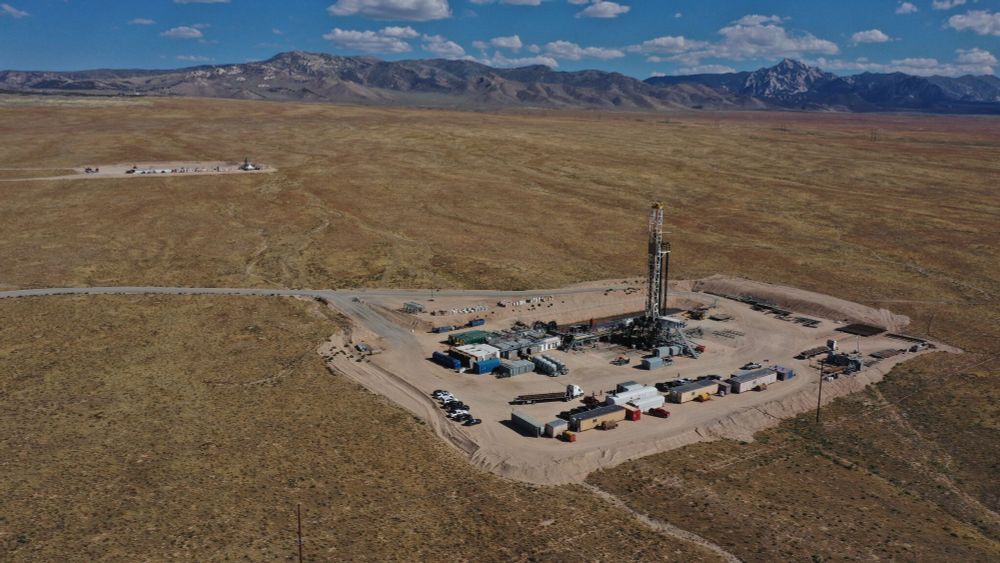
www.houstonchronicle.com/business/ene...
Here's the good, bad and ugly...
(mini 🧵)
🔌💡
Here's the good, bad and ugly...
(mini 🧵)
🔌💡

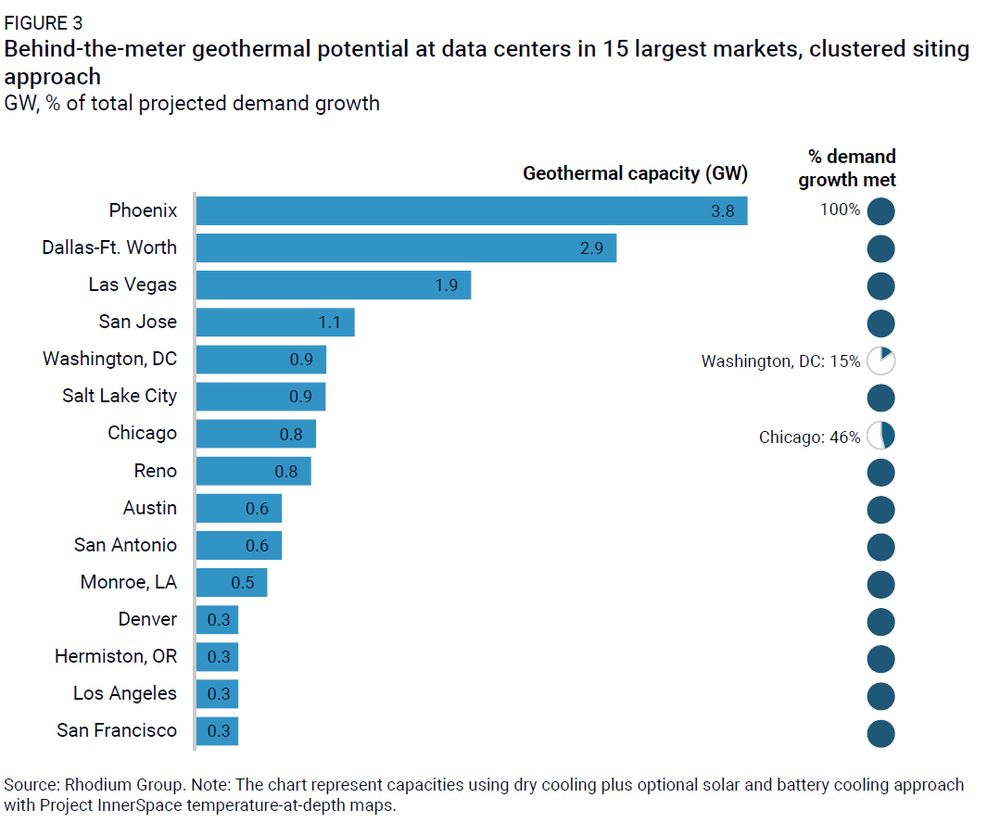
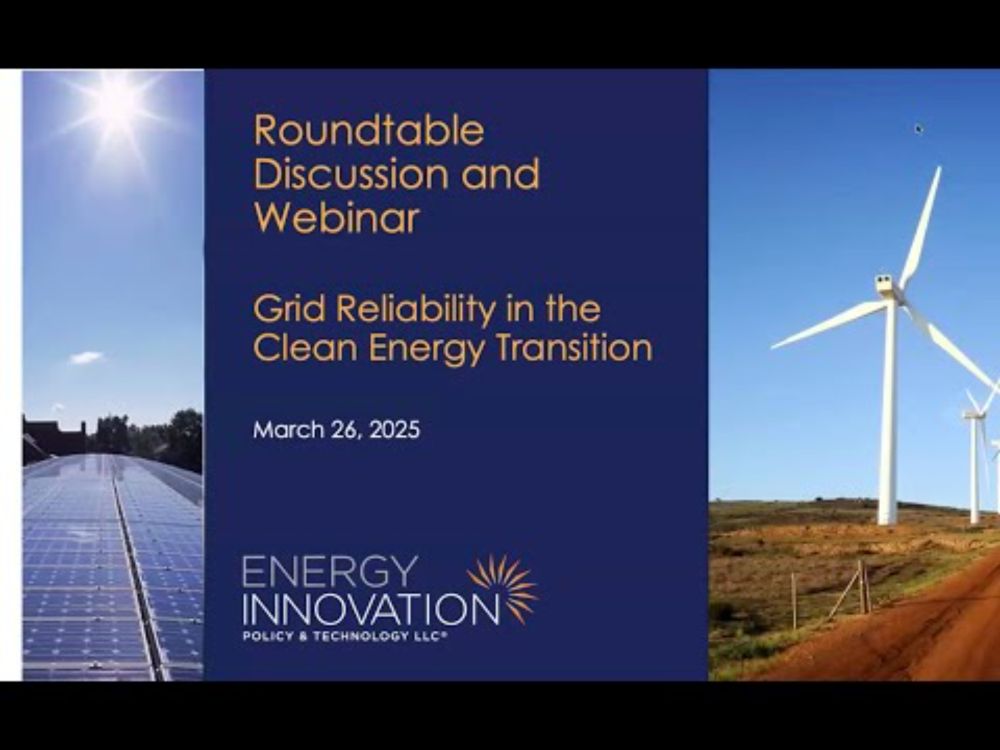

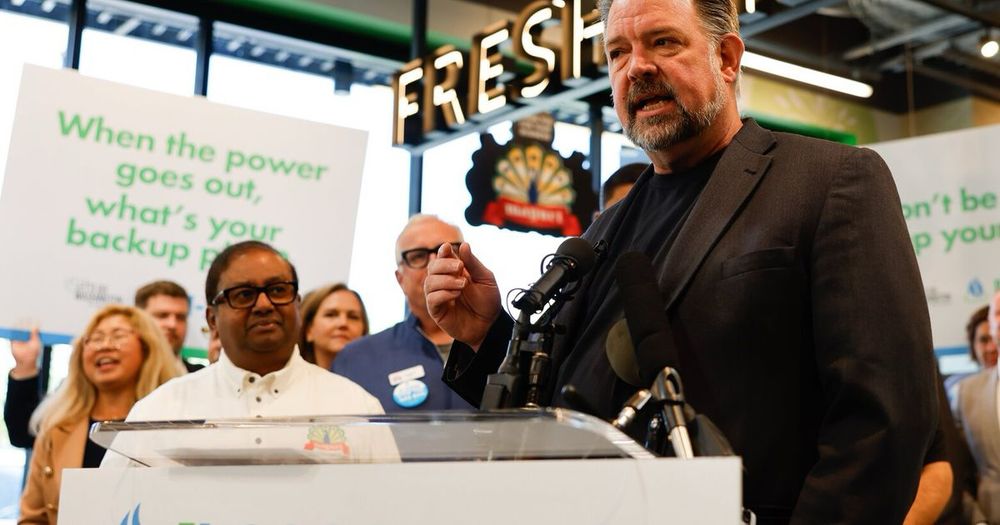
legiscan.com/CA/text/AB52...
🔌💡
legiscan.com/CA/text/AB52...
🔌💡
@costasamaras.com @catiehausman.bsky.social @gschivley.bsky.social @jessedjenkins.com
forms.gle/VWbVNnKX9UvL...

@costasamaras.com @catiehausman.bsky.social @gschivley.bsky.social @jessedjenkins.com
forms.gle/VWbVNnKX9UvL...
www.latitudemedia.com/news/how-24-...
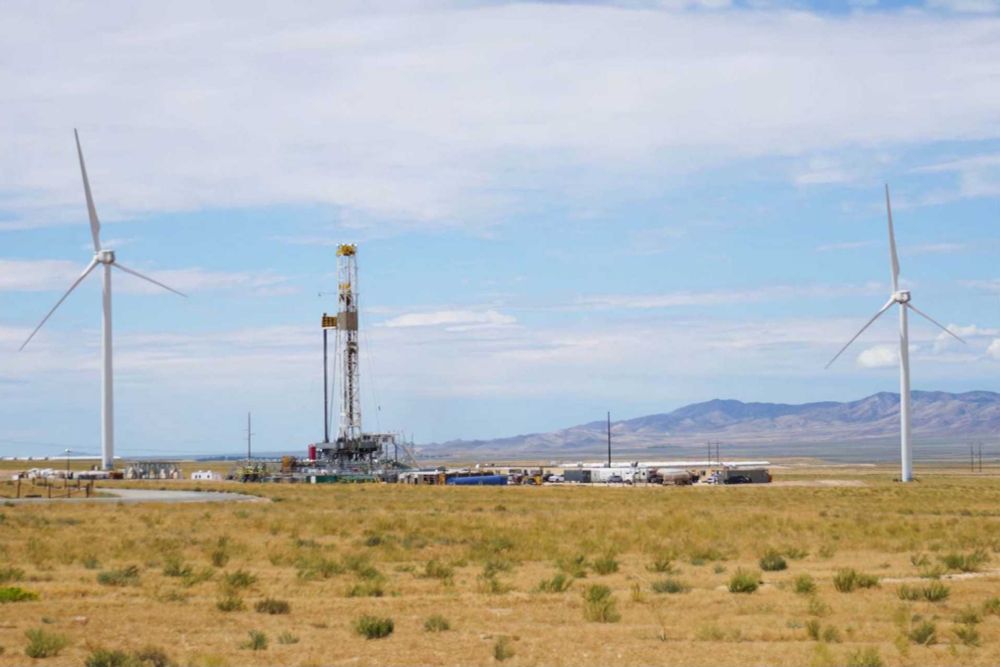
www.latitudemedia.com/news/how-24-...
Register via the link below to join us for a discussion of advanced technologies and they could play in future energy systems.
Join us at 1pm ET next Thursday, February 13th for a panel discussion on our latest topic, "The Role of Advanced Technologies in a Future Energy System."
Register for the event at umich.zoom.us/webinar/regi...
Register via the link below to join us for a discussion of advanced technologies and they could play in future energy systems.
Join us at 1pm ET next Thursday, February 13th for a panel discussion on our latest topic, "The Role of Advanced Technologies in a Future Energy System."
Register for the event at umich.zoom.us/webinar/regi...

Register via the link below to join us for a discussion of advanced technologies and they could play in future energy systems.
www.volts.wtf/p/catching-u...

www.volts.wtf/p/catching-u...
cc @heatmap.news
cc @heatmap.news
screening-tools.com/climate-econ...
screening-tools.com/climate-econ...

